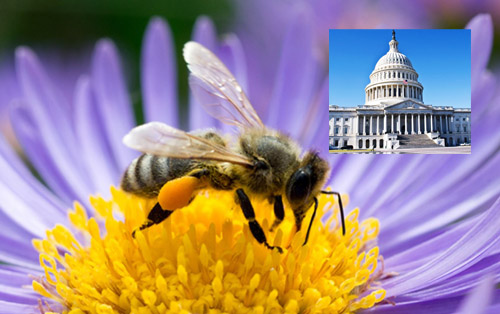Yes! It’s about time. This needs to pass. Call your representative in Congress.
There have been a lot of studies implicating neonicotinoid insecticides as a key contributor to the global decline of pollinators.
This law needs to pass.
“Pollinators are the backbone of America’s agriculture system. Acting now to protect them and stop their decline is essential to the sustainability of our nation’s food supply,” Rep. McGovern said. “Simply taking the word of the manufacturers that their products are safe is not an option. Consumers need strong oversight. That is why I am proud to join Congressman Blumenauer in demanding the EPA fully investigate the effect that certain harmful pesticides may have on the vitality of our pollinators.”
Here’s the original Act:
Saving America’s Pollinators Act of 2017
This bill requires the Environmental Protection Agency (EPA) to suspend the registration of members of the nitro group of neonicotinoid insecticides that are registered under the Federal Insecticide, Fungicide, and Rodenticide Act (FIFRA) for use in seed treatment, soil application, or foliar treatment on bee-attractive plants, trees, and cereals until the EPA determines that the insecticides will not cause unreasonable adverse effects on pollinators. The determination must be based on:
- an evaluation of the published and peer-reviewed scientific evidence on whether the use or uses of those neonicotinoids cause unreasonable adverse effects on pollinators, including native bees, honeybees, birds, bats, and other species of beneficial insects; and
- a completed field study that meets the criteria required by the EPA and evaluates residues, chronic low-dose exposure, and cumulative effects of multiple chemical exposures.
The EPA may not issue new registrations of the neonicotinoid pesticides for any seed treatment, soil application, and foliar treatment on bee-attractive plants, trees, and cereals under FIFRA until it has made the determination with respect to the insecticide.
For purposes of protecting and ensuring the long-term viability of native bees and other pollinators, the Department of the Interior must: (1) regularly monitor the health and population status of native bees, (2) identify the scope and likely causes of unusual native bee mortality, and (3) submit to Congress and make public an annual report on the health and population status of native bees.















